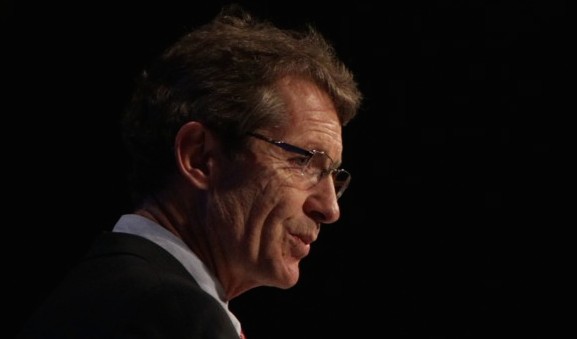Well, it seemed like a good idea at the time!
But early Sunday afternoon the Alberta Liberal Party’s board rejected veteran Edmonton MLA Laurie Blakeman’s plan to attempt a merger of her foundering party with the Alberta Party and appointed Calgary MLA David Swann as interim leader instead.
Why not? Swan, three-term MLA for Calgary-Mountain View and party leader from 2008 to 2011 has already proved he doesn’t have what it takes to lead the Liberals to anything approximating success.
Swann is a fine person, but his chances of achieving much in the face of the Jim Prentice Progressive Conservative juggernaut are negligible at best.
Blakeman’s proposal for a merger effort with the Alberta Party, contained in a public letter issued Saturday, offered the party a little hope. Its rejection by the Liberal Party board in favour of doing something about a merger later, it seems from here, offers much less.
Actually, with the five-member Alberta Liberal caucus on the ropes after three years of flighty leadership by former Progressive Conservative junior minister Raj Sherman, who suddenly quit last Monday, and plans by two Calgary MLAs not to run again, the board’s rejection probably means the Alberta Party will inherit the Liberals’ mantle anyway. The only difference is, when that happens, it will be entirely on the Alberta Party’s terms.
The Alberta Party in its current iteration is made up mainly of disgruntled Liberals anyway, fed up with the Alberta Liberals’ disappointing results under Kevin Taft in the 2008 general election. As a result, in theory, Blakeman’s proposed union of like minds should have been quite achievable and may well have had tacit support in Alberta Party circles.
Blakeman, the five-term representative for Edmonton-Centre, proposed in her statement Saturday night that she be given the job for one year “on the condition that I am given a comprehensive mandate to negotiate a structured co-operation and eventual amalgamation with the Alberta Party.”
She left the door open a crack to including the New Democrats as well — although NDP Leader Rachel Notley has been clear her party is not interested in tying itself to a party in deep distress.
Blakeman’s proposal also called for a joint slate of candidates in the next election and conceded that, at the end of the process, the Alberta Liberals might no longer exist under that name.
Since the Alberta Liberals are not much more than a husk of their former selves, this would have given them access to Alberta Party supporters who are clever political operators — not the least of them Calgary Mayor Naheed Nenshi and his inner circle of advisors.
Alberta Party Leader Greg Clark certainly did better than expected in the Oct. 27, 2014, by-election in Calgary-Elbow with a little help from Nenshi-linked political consultant and former Alison Redford chief of staff Stephen Carter. Clark is a former aide to the late Laurence Decore, Alberta Liberal Opposition leader in the early 1990s.
The Liberal Party board, presumably, is still counting on the idea that there is some magic left in the Liberals’ damaged brand — the seemingly hopeless state of which was one of the motivations for the creation of the restructured Alberta Party in 2009 and 2010.
It is true that Alberta’s Liberals have a history of hanging on to their hard core of supporters at election time. In the past they have been able to count on a cadre of 10 to 12 per cent of the electorate that would vote Liberal no matter what. Even under Sherman, they hung onto 10 per cent of the provincial vote in the 2012 general election.
Even such results for the Liberals are problematic now, however, in the face of Premier Prentice’s apparent ability to restore the PCs’ once-faded lustre and his successful gambit to co-opt the Wildrose Opposition.
With Blakeman’s idea of a Hail Mary Pass to the Alberta Party no longer part of the game thanks to the Liberal board, the prospects for the survival of the Alberta Liberal Party seem increasingly dim.
This post also appears on David Climenhaga’s blog, AlbertaPolitics.ca.



